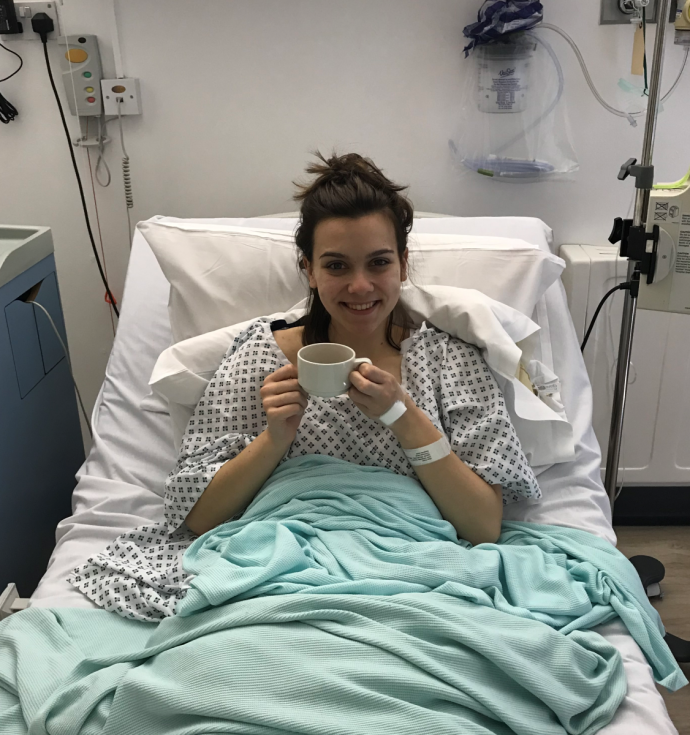To mark Endometriosis Awareness Month, Olivia shares her story of being diagnosed with endometriosis and what the condition has taught her.
When were you diagnosed with endometriosis?
I was diagnosed in May 2019, it took me around 4 years to get diagnosed after endless doctors appointments, seeing different GP’s and trying to get answers. Although it’s not nice to know you have a chronic condition that will never go away, getting the diagnosis was a huge turning point in my life and massively impacted my mental wellbeing knowing that I wasn’t going crazy and there was actually something going on.
How did endometriosis impact on your education?
I think I was quite lucky with the fact my endometriosis didn’t affect me in school. I started with the symptoms when I was around 17 so I was out of full time education at this point. I do remember being at college studying dance and really struggling with this and knowing there wasn’t something right. The thing it did effect most is when I decided to move to London for University in 2018 (I’m from West Yorkshire originally) and I struggled massively with the pain. I didn’t have a diagnosis so had no idea what was going on in my body which led to me developing severe health anxiety and having to drop out of university and come home. It’s something I always beat myself up about but at the time I felt so alone and was so confused with my body and needed answers.
How have you found support for your endometriosis?
When I first got diagnosed, I had no idea what Endometriosis was, when I went in for the diagnostic laparoscopy I was pretty sure he was going to find something sinister. The first thing I did was search it on YouTube. I then found Endometriosis UK, and I’m not just saying this, the resources have been so helpful. It helped me understand my condition and also gave me ideas on how I can manage my pain. I used the ‘Endometriosis in the workplace’ PDF when I started my new job and gave it to my manager so she could understand my condition a little better. I’m lucky that I have a good support network but I know sometimes people don’t understand it. My friends are all super supportive and understand if I need to stay in with a choccy digestive and a cuppa instead of go out for the evening. I’ve also met a lot of women through my diagnosis, and it’s opened me up to this brilliant community of not just women with endometriosis but general chronic pain and it’s so lovely.
How has endometriosis impacted your work?
This is the big one and the one I struggle with most. I like to work and I find it really hard how endometriosis puts a restraint on my career. Recently I’ve been really struggling with my pain and it’s had a massive impact on my job, I’ve missed so many days and as well as the pain just being horrific, it can also affect your mental health. I’ve started looking for more flexible working jobs and working from home opportunities but it frustrates me a lot that I even have to do this. I feel like I’m having to put my career second (which I know you should) and not be able to do things I maybe could of done without my condition. I think it’s important to find that balance and be able to have open conversations with your employer about what you are capable of, both physically and mentally.
What has having endometriosis taught you?
Wow, what has Endometriosis taught me. It had taught me how strong I can be. I think if I hadn’t have got this I wouldn’t have been able to see how strong and brave I can be and how much I can go through and still be smiling. It’s taught me that no matter how rubbish I feel, I am never alone, there are thousands of women going through exactly what I’m going through and by joining groups and meeting people online I have learnt to never keep things to myself. It has taught me to never settle. I’m proud of myself for not just stopping going to the doctors and giving up after the 12th time they told me it was IBS. As cliché as this sounds it’s taught me to live in the moment more. Before my diagnosis I was a very uptight person (still am a bit) and would need to have everything planned and not do things spontaneously.
Endometriosis is unpredictable and you don’t know when a flare up can happen so it makes me want to enjoy moments more and do more things in the here and now rather than waiting and having pain when I’ve planned something".


